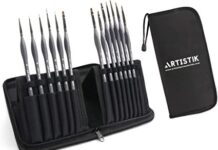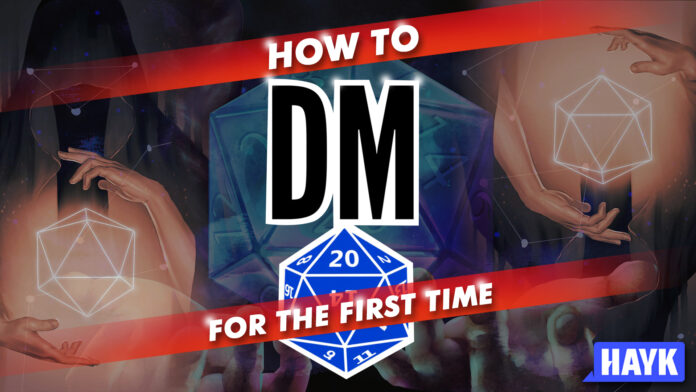
Becoming a DM is a fruitful journey filled with interesting activities like creative writing, organizing, narrative planning, storytelling, and people management. If you’re a beginner DM, all of these activities can leave you anxious or overwhelmed.
Well, don’t worry! This article will help you understand the basics of how to DM for the first-time. By learning about these basic foundations, you can DM a campaign with minor difficulties and a greater rate of adaptability.
Contents of this Page
DMing On Your First Adventure Game – The Fundamentals
Build and Organize Your Campaign’s World

Any campaign is set in a thriving world, whether that world is a sentient donut or a floating rock in the Cosmos. Your job – as a DM – is to let this world live and show it to your players. For many beginner DMs, this is a daunting task that requires focus and in-depth writing skills.
It’s a great thing that any dedicated person can break down a big task into smaller tasks. This applies in DMing, as well as in other aspects of your life. You just need to determine the overall backdrop of your campaign world. Is it your unique version of Faerun? Is your world a place of utter despair, cruelty and a whole lot of potential cart situations? Or is it a dream world filled with aspirations and shades of freedom? Take your journal and write about the backdrop of your world.
Once the backdrop is complete (at least one standard A4 page), it’s time to fill down the specific details. You can go overboard with the details, but it’s a wise choice to keep a maximum of ten world concepts with a solution. You’re building a story and not an encyclopedia.
After fleshing out your world’s backdrop, you can now support the details with micro-stories and fun text snippets. Don’t dump every piece of lore on your table. Rather, attach these lore pieces into plot hooks or even side quests. This slow process will build up the suspense and keep your players interested. Your players won’t feel railroaded, and they will always have a high level of player agency.
Know Your Players

One of the ways to increase the likelihood of your campaign’s success is to know your players right from the start. You don’t need to learn the deepest secrets of your players, but you must know their motivations at the table.
A brief but informative interview process can help you understand players. You can start by preparing a questionnaire with easy-to-answer questions.
These are some sample questions that you can ask:
- What do you wish to achieve for your character?
- How do you handle disagreements with someone?
- Are you looking for a long-term campaign or a short adventure?
- Do you have experience playing older D&D editions?
- What is important for you? Wealth, glory, freedom, or political clout?
- Have you tried using online software like virtual tabletop tools or messenger apps?
- How much is your experience with D&D 5E?
It’s better to interview your players in the campaign’s Session Zero. During this phase, you have the chance to clarify various things like limitations, campaign themes, and house rules. If you’re against some builds or stereotypical attitudes (i.e. flirty bard), emphasize these in Session Zero. Don’t forget to pick between XP and Milestone Leveling to determine the progression method of characters.
You should understand that player attitudes are unpredictable. A player might appear considerate at early levels but mercurial on higher tiers. Power, after all, corrupts nearly everyone. So, be prepared for rapid narrative changes in your table!
Read and Analyze the Dungeon Master’s Guide
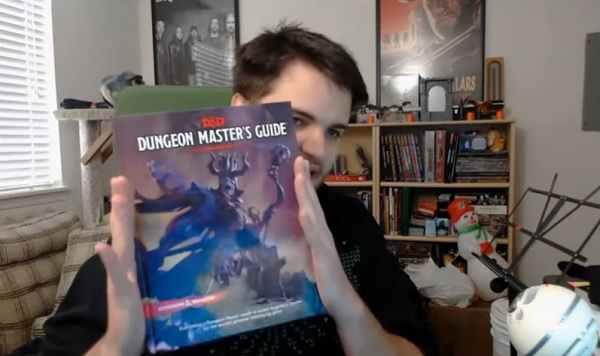
The Dungeon Master’s Guide is the official handbook for DMs of D&D 5E. It contains useful information on everything you need for a campaign: monsters, planes, adventure rules, travel, downtime, equipment, and magic items. Aside from valuable information, the DMG is pleasing to look at because of its remarkable artwork and excellent formatting.
Reading the DMG will improve your DM knowledge significantly. You’ll learn some basic techniques on building your homebrew campaign world, as well as managing the entire adventure. The DMG doesn’t cover deeper things like extra combat maneuvers and complicated scenarios, but it’s more than enough.
Even though the DMG is brimming with bits of useful information, you don’t need to follow them all. You may consider the DMG as a guide and not a strict rulebook because narrative supersedes rules in D&D. To get the best out of the DMG, you should get the D&D 5E Player’s Handbook as well. The Handbook covers deep rules on character creation, combat, and spells.
After reading the DMG, try to connect your notes with the book’s concepts. This will help you develop a deeper understanding of DMing, and you can even formulate an original style.
Remember Your Favorite Fantasy or Sci-Fi Moments
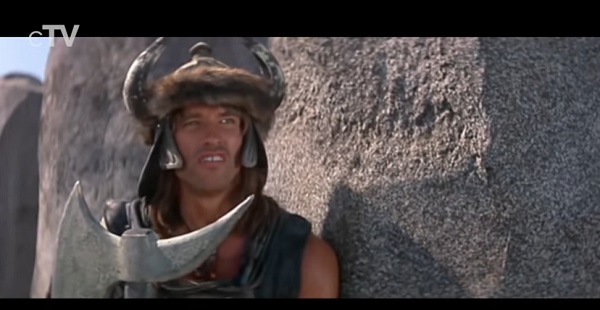
Do you remember the time when Sam carried Frodo up to Mt. Doom despite his exhaustion? Or perhaps Darth Vader’s death tugged your emotional strings? These moments are not just memorable, but they also make excellent materials for any campaign. You don’t need to copy such scenes exactly. Instead, use those scenes as sources of inspiration for your story.
Fantasy scenes from movies or series will help you prepare for battles or meaningful interactions. Imagine a big dinner attended by prolific individuals or a daring last stand against an army of marauders. Sci-Fi scenes, on the other hand, will give you a primer on tech jargon, futuristic combat, and mecha destruction.
If you can’t remember specific scenes, just open Youtube. Hit a few keywords related to fantasy or Sci-Fi tropes and you’re good to go.
Use a Note-taking Tool
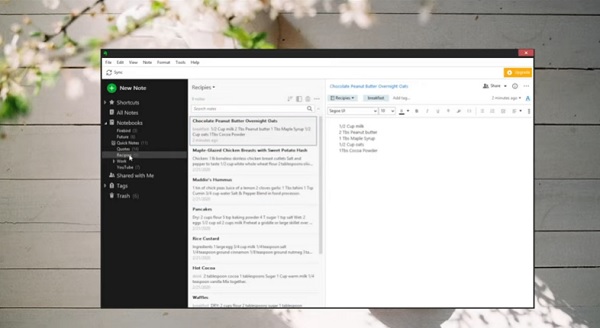
Since D&D is a game filled with details and relevant information, you must have a way to track it all. The traditional notebook is a great way to track stuff, but you can also use digital tools like OneNote and Evernote.
OneNote is a simple tool that you can find in any modern Windows OS. The program simulates a real notebook, complete with customizable and movable tabs. You’re even allowed to make multiple notebooks for your ideas and campaign lore.
Evernote rivals OneNote because of its simplicity, advanced cloud sharing, and device compatibility. Once installed, you can use Evernote on any of your devices as long as you synchronized the tool. Evernote also doubles as a presentation tool, letting you run battle maps and share them with other users.
If you don’t like OneNote or Evernote, take a look at the built-in notepads of VTT (Virtual Tabletop) programs. These notepads save time but they slow down the program as your campaign accumulates a ton of details.
Without taking down notes, you’re going to face a couple of inconsistencies ahead. Your players will forget stuff, especially the name of the NPC they met a few sessions ago. Eliminate annoying consistencies by using a simple way of documentation. This should sometimes come a long way.
Be Comfortable with Improv
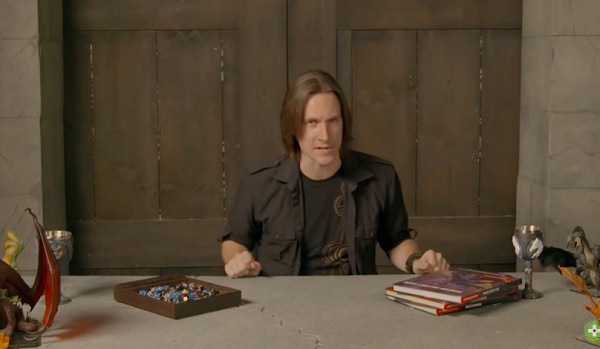
Improv is short for improvisation – a common technique in Arts where the actor says unplanned lines to achieve a greater dramatic effect. In D&D, improvisation can sway the narrative or supersede strict rules. The technique is even useful for making NPCs more interesting than they truly are. Through improv, you can tug at heartstrings or highlight a clue that players have overlooked before. A great improv-driven roleplay can also change the course of national diplomatic relations.
To get comfortable with improv, you must watch a couple of Youtube videos or movies. Focus on the interactions among your favorite characters. Understand the characters’ speech patterns, tics, and social cues. If possible, jot down all of your observations. Do this for at least 30 minutes per day and see the improvements during your game session.
Players will also do a large part of improv and roleplaying, so you’ll have many chances to catch your footing. If you think that you committed a mistake, note it down and move on. Players will rarely remember your mistake unless it’s mechanical, game-breaking, and detrimental to their characters.
Another way to become better at improv is to keep the challenge bar high. In published adventures, just read about the mannerisms of NPCs and set their interaction texts aside. Try to emulate the NPCs, especially the important figures. This will require a higher degree of emotional investment on your part, but your campaign will improve.
Overcoming DM’s Fears – A Video Guide
Is fear preventing you from DMing your campaign or any published adventure? Overcoming your fears isn’t easy. It takes time and hands-on experience to get past your fears and become a professional DM.
Here’s a comprehensive video guide to help you fight your fears and become a successful DM:
FAQ for Beginner DMs
Can anyone become a DM?
Answer: Yes, but not everyone can finish a long campaign. It also takes skill and patience to become a proficient DM.
What are the skills needed of a DM?
Answer: The main skills of a DM are negotiation, communication, organization, tech-savviness, improvisation, and deep game knowledge. Don’t worry – you’ll learn these skills as you run campaigns and adventures over time.
What are the core books needed by a DM?
Answer: The big three: 5E Monster Manual, Player’s Handbook, and Dungeon Master’s Guide. If you need supplements, you can never go wrong with Tasha’s Cauldron of Everything and Xanathar’s Guide to Everything.
What VTTs are great for beginner DMs?
Answer: Owlbear Rodeo is intuitive and doesn’t have cluttering mechanics. Foundry and Shard Tabletop also have the mileage to help you run a small or big campaign. Roll20 is the most popular choice because it covers many functions and in-depth customization tools. The downside of using Roll20 is its difficulty curve.
Final Reminders on Having Fun while DMing
DMing is overwhelming the first time around because you need to juggle many factors at once. However, as long as you keep everything organized, you’ll have an easier time running a fun and engaging campaign. Mistakes are also part of the DMing journey, and these mistakes will help you improve progressively.
So, bookmark this article, analyze your campaign essentials, and run a wonderful game!
Recap – Advice on How to DM for the First Time
1. Build and Organize Your Campaign’s World
2. Know Your Players
3. Read and Analyze the DMG
4. Use A Note-Taking Tool
5. Remember Your Favorite Fantasy and Sci-Fi Moments
6. Be Comfortable with Improv


